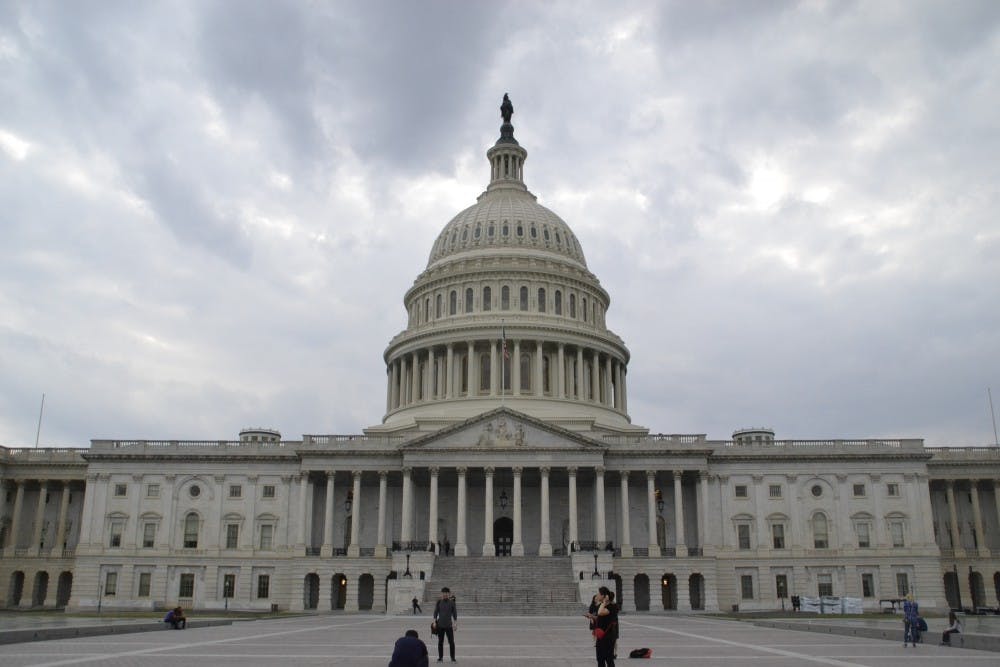Republicans hit a roadblock last week with repealing and replacing the Affordable Care Act, but they are making progress in deconstructing broad internet privacy protection policies that were created under former President Barack Obama’s administration.
The Federal Communications Commission (FCC) approved the internet protection rules on Oct. 27, 2016 in a 3-to-2 vote, according to The New York Times (NYT). The policies further prevent internet service providers, such as AT&T, Comcast and Verizon, from gathering and disseminating information related to a user’s browser history, location, financial data and other personal information.
The United States Senate voted 50-to-48 Thursday to repeal the FCC’s rules, starting what could be an end to internet privacy. The House still needs to vote on the proposal, but President Donald Trump is expected to sign the legislation if it makes it to the Oval Office, according to the NYT.
The real crux of the legislation is that it allows companies to use customer information without their permission.
Internet service providers could use the data for targeted advertising and to sell it to third parties, reported The Hill.
If the legislation makes it to Trump’s desk and he approves it, any internet customer could automatically relinquish his or her privacy without question. While federal intelligence agencies already have the capability of looking up people’s browsing history and patterns, the change in policy will open the door to widespread access to personal information.
On the surface, internet users could see even more advertisements that are specifically targeted at their personal browsing habits. For example, if you are helping a friend browse for clothing online with your computer, you could see advertisements on websites you visit that are related to clothing. While this isn’t entirely new, a lack of privacy protection could lead to companies directly sending you advertisements via email, postal mail or over the phone.
Shippensburg University students are already experiencing targeted advertisement as they use SU’s website. SU’s website states it or a third party tracks how user’s browse ship.edu so ads can be targeted to users on other websites they visit. SU offers students a way of opting out of targeted advertising by visiting networkadvertising.org.
SU also tracks how people use ship.edu to analyze the data with Google Analytics. It does not allow the information gathered to identify individual people.
“We do not associate any data gathered from the site with any personally identifying information from any source as part of our use of Google Analytics,” SU states on ship.edu.
While students may see privacy protection on ship.edu, there is no guarantee the same level of privacy applies when browsing the internet via SU servers. Under its “Computing and Information Network Usage Policy” SU states, “There should be no expectation of privacy information stored on or sent through university-owned IT resources, except required by law.”
Whether students want privacy from their internet service provider, SU or the federal government, they could use an alternative internet browser, such as Tor Browser. The browser is free to download, install and use, and it provides anonymity when surfing the web. While not foolproof, the browser gives you privacy by sending your communications to different relays to prevent people from tracking your internet-use history.
Be warned — using Tor, or a similar software package, may put you in violation of SU’s network usage policies.
“Attempting to disguise the identity of the account or machine you are using is prohibited,” states policy No. 3 of “Computing and Information Network Usage Policy.”
While Tor may be an option for students who have internet access outside of SU, it isn’t a permanent method to maintaining privacy. Surfing the web with Tor can be slow and it cannot ensure complete anonymity.
A lack of internet privacy will result in winners and losers, but the new legislation will serve as a reminder to internet users that what happens on the web does not stay on the web.





The Slate welcomes thoughtful discussion on all of our stories, but please keep comments civil and on-topic. Read our full guidelines here.